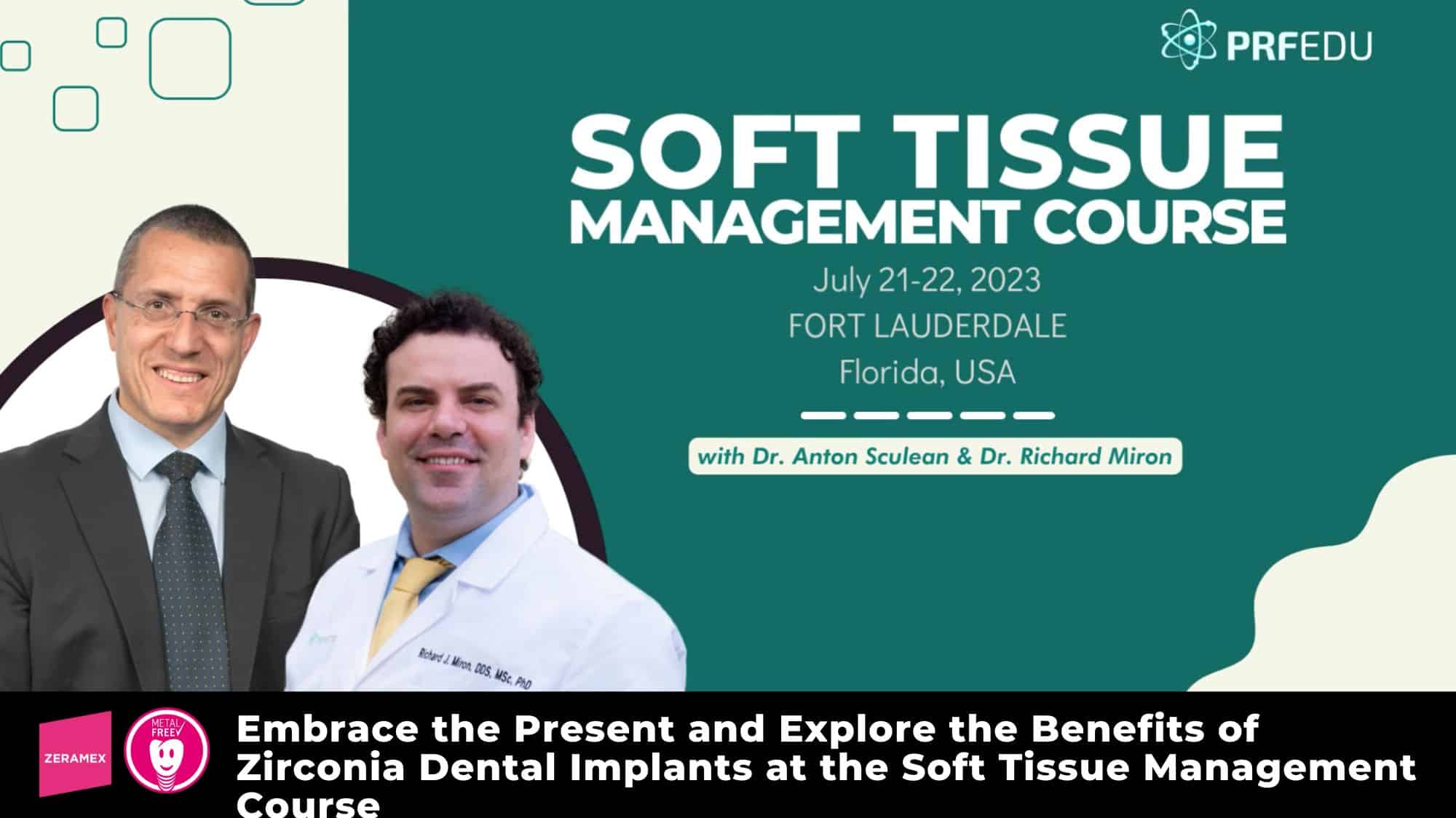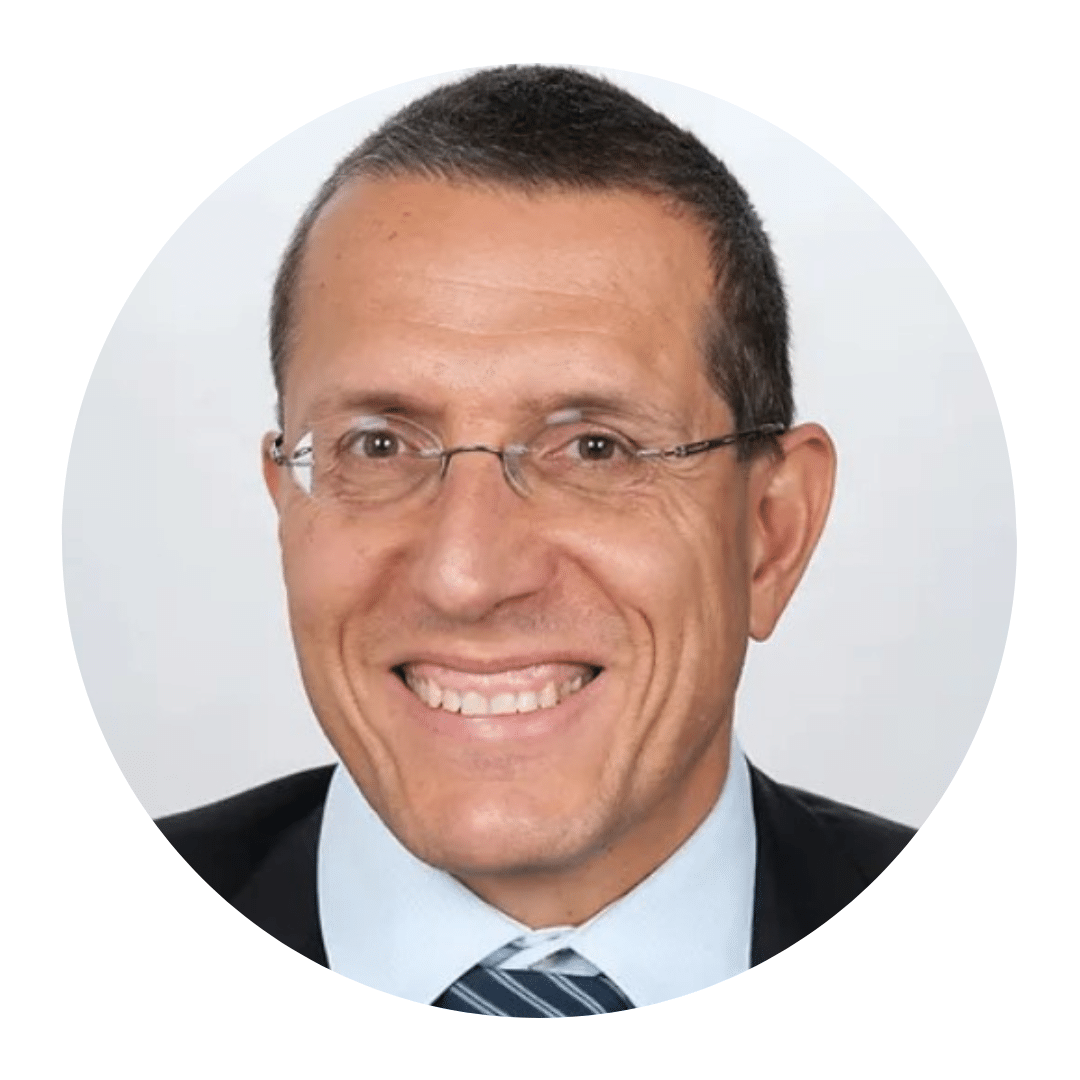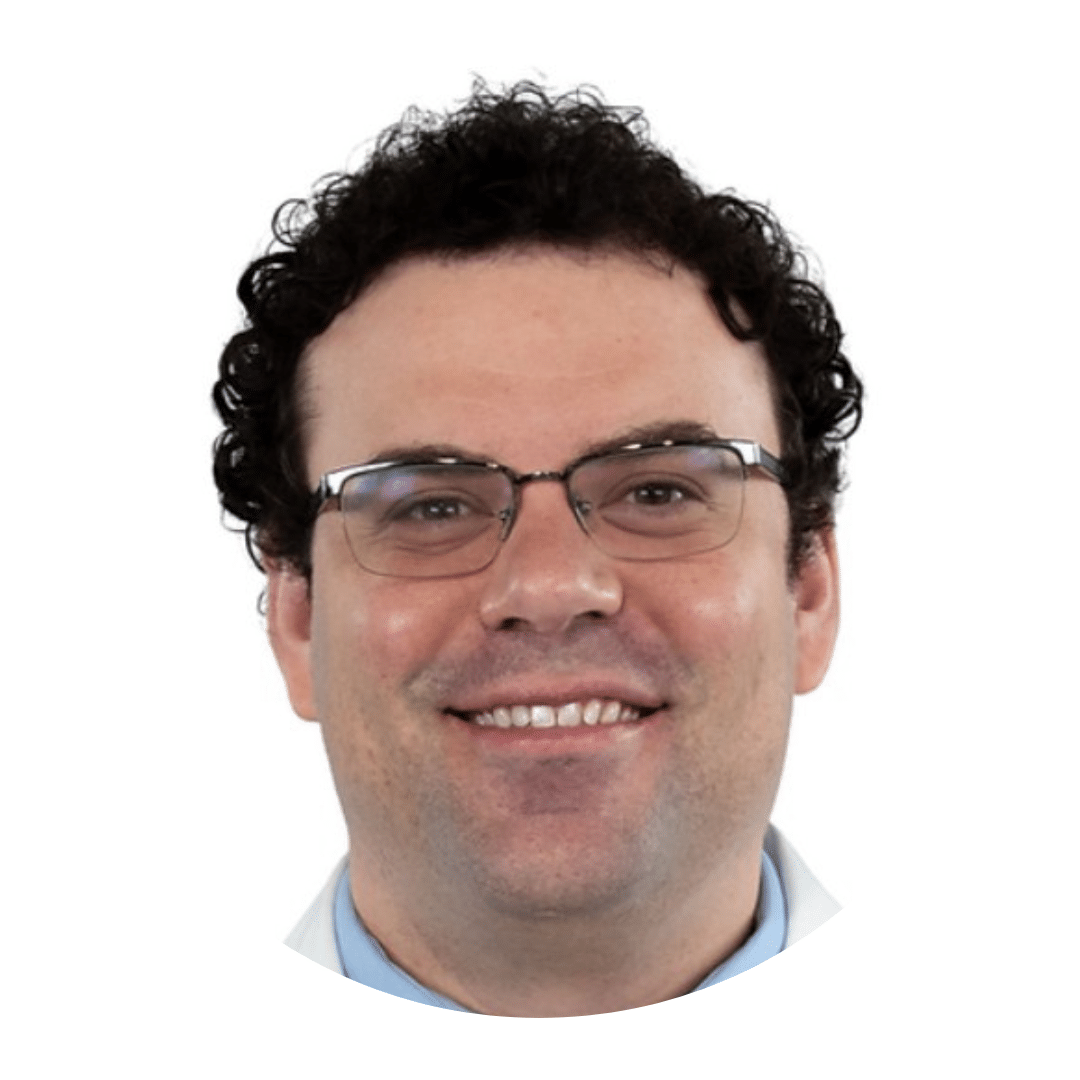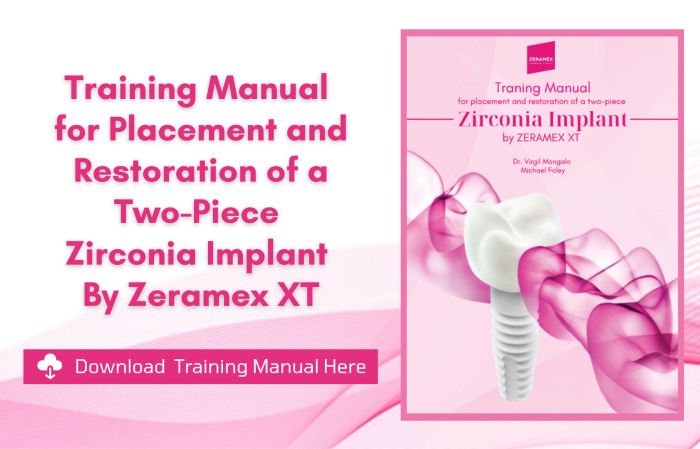
Location
- Nova Southeastern University
- 3200 South University Drive, FT. Lauderdale FL 33328
More Info
Date
- Jul 21 - 22 2023
- Expired!
Time
- All Day
Explore the Benefits of Zirconia Dental Implants at the Soft Tissue Management Course
The time of zirconia dental implants is NOW and it presents a significant opportunity for your business to enhance the well-being of your patients and drive patient satisfaction. Ceramic implants, specifically zirconia implants, offer numerous advantages over traditional implant materials like titanium. Let's explore how ceramic implants can benefit your business, your patients' happiness, and, most importantly, their health.
By embracing zirconia dental implants in your practice, you can position your business at the forefront of dental innovation, attracting patients who value the benefits of ceramic implant. Your patients will appreciate the natural aesthetics, improved soft tissue response, and long-term health advantages associated with zirconia implants, leading to higher patient satisfaction and loyalty.
This course will present various clinical cases and techniques that demonstrate the practical applications of achieving periodontal regeneration and enhancing esthetic outcomes. Participants will gain a comprehensive understanding of the significance of zirconia implants in wound healing and regenerative procedures, leading to optimal clinical results.
More about the Course:
Master Soft Tissue Management:
Join Dr. Anton Sculean and Dr. Richard Miron for an In-depth Course on Improving the Predictability of Regenerative and Plastic Esthetics Periodontal Surgery + Peri-Implant Surgery
Earn 16 CE Credits!
This course is for dentists and periodontists who want to learn more about regenerative and esthetic procedures in periodontology. The field of cell and molecular biology has revealed important information about wound healing, showing that it can result in either scar tissue formation (repair) or the restoration of lost tissues (regeneration).
Course description
This course addresses general dentists and periodontists who intend to learn more about the use of regenerative and esthetic procedures in periodontology.
Advances in cell and molecular biology have contributed to increased understanding of wound healing of various tissues, and revealed a great complexity of processes involved. In general, the outcome of wound healing can be characterized either as repair, i.e. scar tissue formation that differs in form and/or function from the original tissues, or regeneration, i.e. form and function of the lost tissues is restored. A large body of evidence has established that polypeptide growth and differentiation factors, natural biological mediators critical to development of tissues and organs, may support wound healing/regeneration creating an environment conducive to and/or immediately inducing de novo tissue formation.
The better understanding of the biology combined with improved surgical techniques yielded to clinical concepts enabling predictable treatment outcomes in intrabony and furcation defects. Recently, the use of biological active molecules such as enamel matrix proteins in conjunction with innovative surgical techniques such as the Modified Coronally Advanced Tunnel (MCAT) with or without connective tissue grafts or collagen matrices has been proven a predictable technique to treat single and multiple gingival recessions and to correct various types of soft tissue defects around teeth and dental implants, improve tissue thickness and avoid scar tissue formation. Presentation of clinical cases, schematic drawings and video presentations will demonstrate the clinical applications of various techniques to achieve periodontal regeneration and improve esthetic outcomes.

Course objectives
To present treatment concepts aiming to predictably obtain periodontal regeneration in intrabony and furcation defects.
To present treatment concepts aiming to predictably obtain root coverage of single and multiple recessions and to correct soft tissue defects at dental implants.
To teach the optimal flap design and suturing techniques in regenerative surgery at intrabony and furcation defects.
To teach the Modified Coronally Advanced Tunnel (MCAT) using subepithelial connective tissue grafts, soft tissue replacement grafts with or without biological active molecules for predictable coverage of multiple gingival recessions by using specially developed tunnel instruments.
To introduce adjunctive growth factors capable of inducing periodontal regeneration including enamel matrix derivative (Emdogain) and platelet rich fibrin (PRF) as regenerative modalities for soft tissue regeneration.
To describe the clinical indications for when to utilize each regenerative modality in various clinical settings.

Theoretical part
Presentation of a critical overview on the available regenerative materials and of biologically based treatment concepts for obtaining predictable outcomes in intrabony, furcation and recession defects. Presentation of new data on the treatment of recession defects around dental implants.
Practical part: exercises on animal models (pig mandibles)
Treatment of an intrabony defect using bone grafting material and collagen membrane with or without biologic agents
Papilla preservation techniques and single buccal flap to maximize the outcomes
Treatment of a furcation defect using bone grafting material and collagen membrane with or without biologic agents
Modified Coronally Advanced Tunnel (MCAT) using connective tissue grafts, collagen based soft tissue replacement grafts with or without biological active molecules for recession coverage
Laterally Moved Double tunnel for the treatment of single deep recessions
Suturing techniques for flap predictable closure
Connective tissue graft harvesting
Suturing techniques for graft fixation
Suturing techniques for coronal flap advancement and fixation
About the Instructors:

Anton SCULEAN, DMD, Dr. med. dent., MSc, PhD
Lead Educator at PRFEDU in Soft Tissue Grafting and Periodontal Regeneration
Professor and chairman of the Department of Periodontology
Executive Director of the School of Dental Medicine, University of Bern, Switzerland.
Recipient of many research awards, among them the Anthony Rizzo Award of the Periodontal Research Group of the International Association for Dental Research (IADR), and the IADR/Straumann Award in Regenerative Periodontal Medicine
Authored more than 280 publications in peer-reviewed journals
Editor of the book Periodontal Regenerative Therapy published by Quintessence
President of the IADR Periodontal Research Group from 2009-2010
President Elect (2018-2019) of the European Federation of Periodontology (EFP)
Research interests focus on periodontal wound healing, regenerative and plastic-esthetic periodontal therapy, use of antibiotics, antiseptics and novel approaches such as lasers and photodynamic therapy in the treatment of periodontal and peri-implant infections.

Richard MIRON, DDS, MSc, PhD, Dr. med. dent.
www.themironlab.com
Researcher of Advanced PRF and liquid PRF technology
Affiliated Professor in the department of Periodontology, University of Bern in Switzerland
Masters in Cell Biology at the University
PhD in Molecular and Cell Biology
Doctor of Dental Surgery – Laval University in Canada
Main research interests involve the use of growth factors used for bone and periodontal regeneration
Author and co-author of over 200 internationally peer-reviewed scientific publications
Dr. Miron and Dr. Joseph Choukroun edited a 15 chapter textbook titled: “Platelet Rich Fibrin in Regenerative Dentistry: Biological Background and Clinical Indications” gathering collaborations from 20 co-authors from around the globe.
Named the 2015 Young Investigator of the Year in Implant Dentistry from the International Association of Dental Research (IADR) and 2016 International Team for Implantology (ITI) Andre Schroeder Research Recipient
